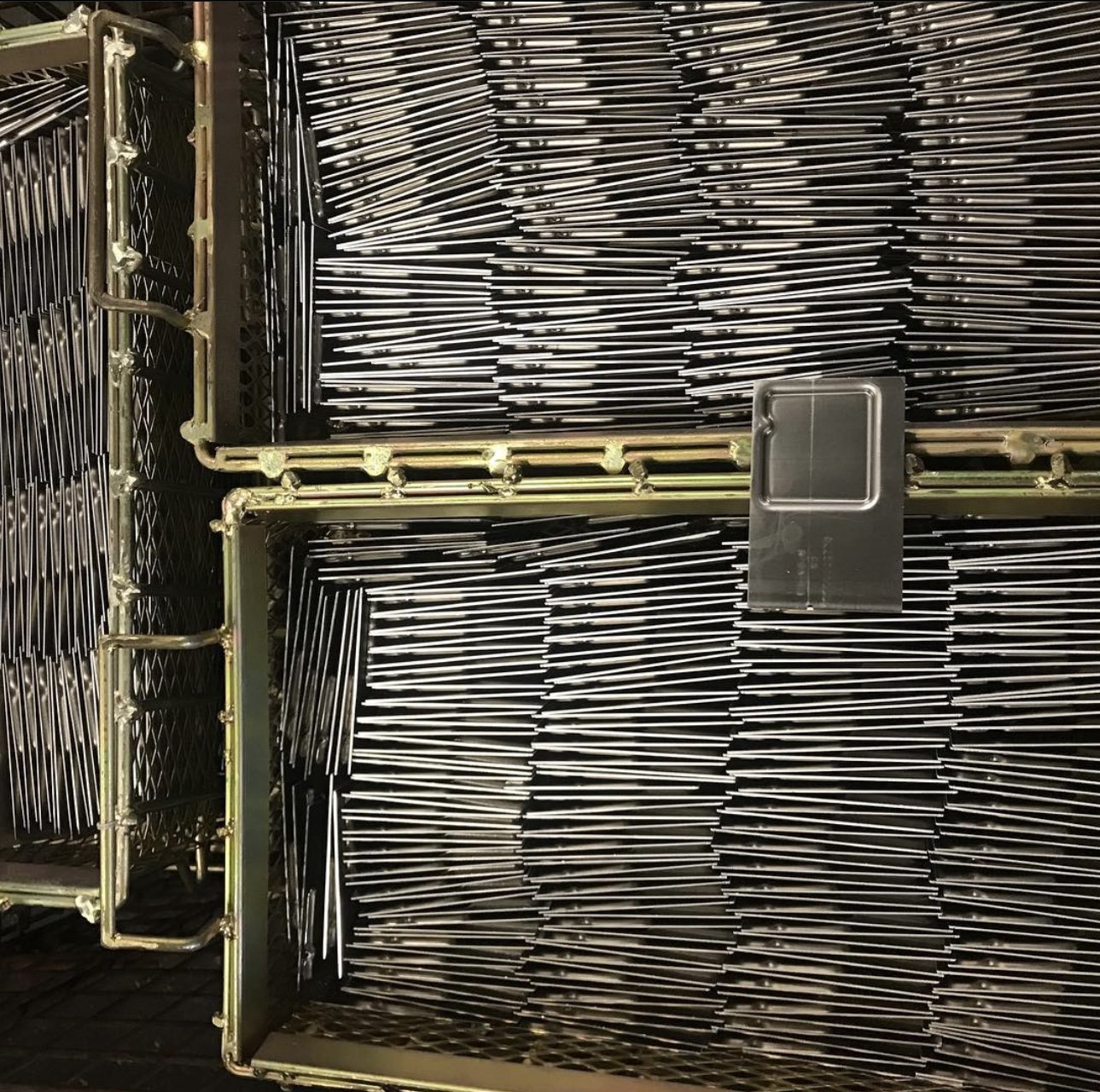VAPOR DEGREASING
This is a very efficient process. It provides excellent Degreasing with very little handling of parts. It is a great alternative to the tumble degreasing process as it eliminates the potential of any distortion that may occur to delicate parts. We currently have 2 Degreasers. The interior (work area) dimensions are 6' long x 3' wide. We Vapor Degrease using NPB solvent (n-Propyl Bromide) which boils at 160 degrees F. The solvent then turns into a vapor which cleans the parts. The parts are lowered into the machine and left in the vapors area for the required time. The work piece is then moved up to the freeboard chilling area which is at a temp of -20 degrees F. Any remaining solvent evaporates, and Degreasing is complete.
DEBURRING
Metal parts are manufactured using many processes. Deburring is a process that removes built-up burrs and other imperfections from a finished surface. A burr is a ridge or area of roughness produced during the cutting of metal parts or materials. Fortunately, we specialize in Deburring parts from .10in to 1ft. Using different types of Media (stone), Grit (Aluminum Oxide), or just as simple as a part-on-part process with Corn Cob.
DEGREASING
This is an essential part of manufacturing. Particularly in industries from fabricating to assembling metal parts Ex. Aircraft, Appliances, Automotive, and Electronics. These processes are used to remove oils or any oil-borne soils, such as chips and metal fines from manufactured parts. Other than our process of Vapor Degreasing we offer Aqueous Degreasing. To accomplish a clean (Degreased) job we offer different cleaning methods. Corn Cob degrease to a variety of chemicals that will achieve the desired cleanliness of parts.
CITRIC ACID PASSIVATION
Passivation is a widely used metal finishing process to prevent corrosion and to remove free iron from the surface. The chemical treatment leads to a protective oxide layer that is less likely to chemically react with air and cause corrosion. We use Citric acid over Nitric acid. Reason being, it is an environmentally safe chemistry. It’s easy to use and dispose and has a low workplace hazard chemistry. Meets all current industry standards. Passes salt spray, immersion, copper sulfate and high humidity tests. Excellent results with all grades of stainless steel.
INHIBITING
Rust prevention is essential to protect steel parts in between production processes and storage of parts. We provide an oil-based inhibitor and a water-based inhibitor depending on the spec required.




